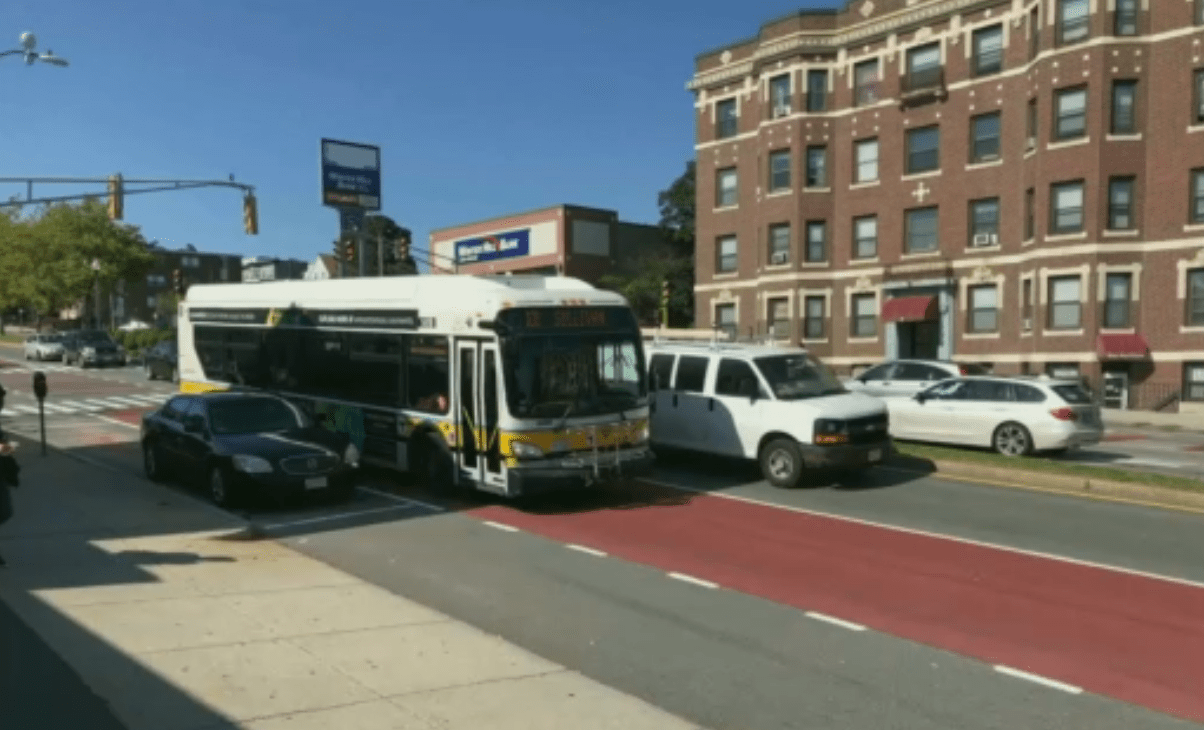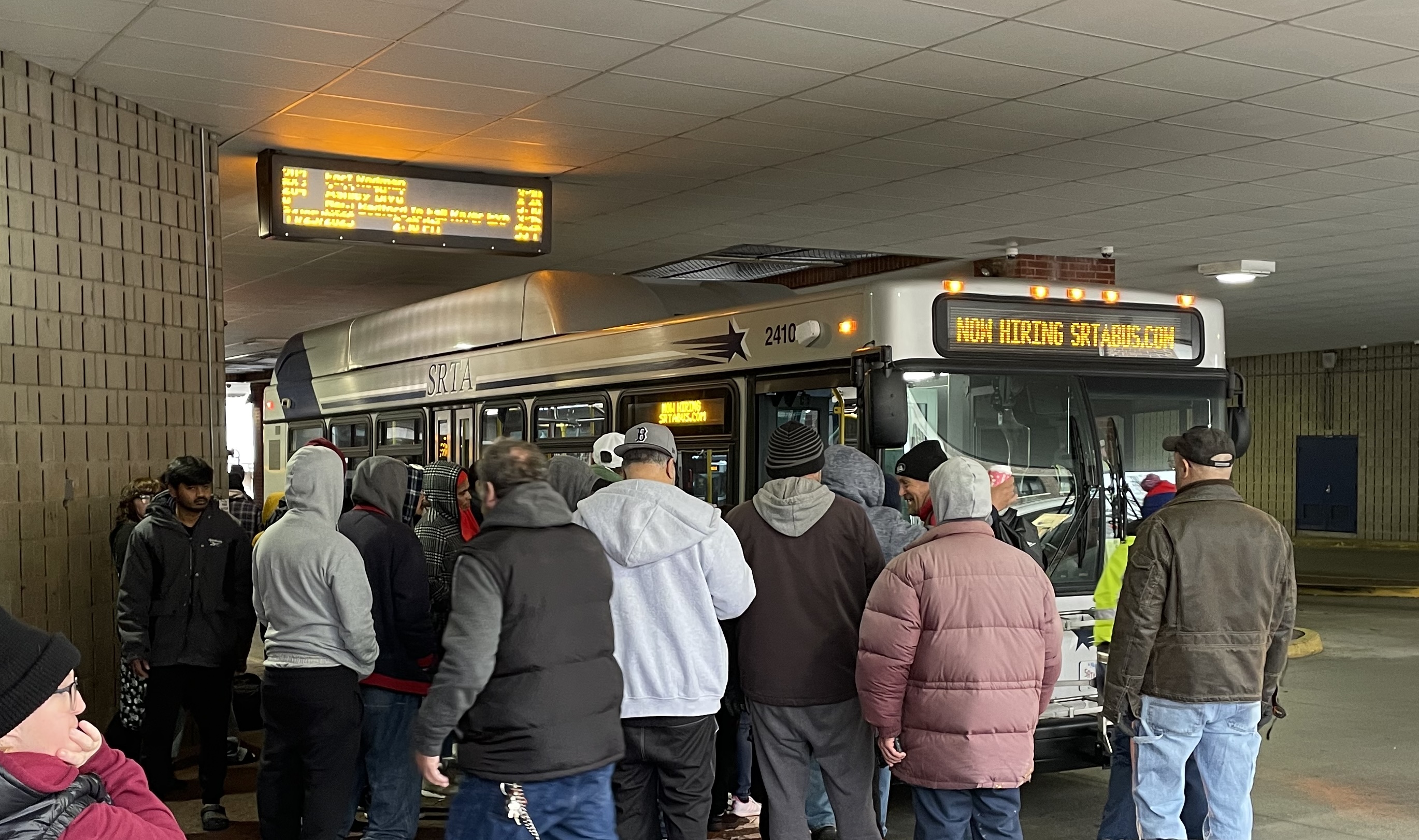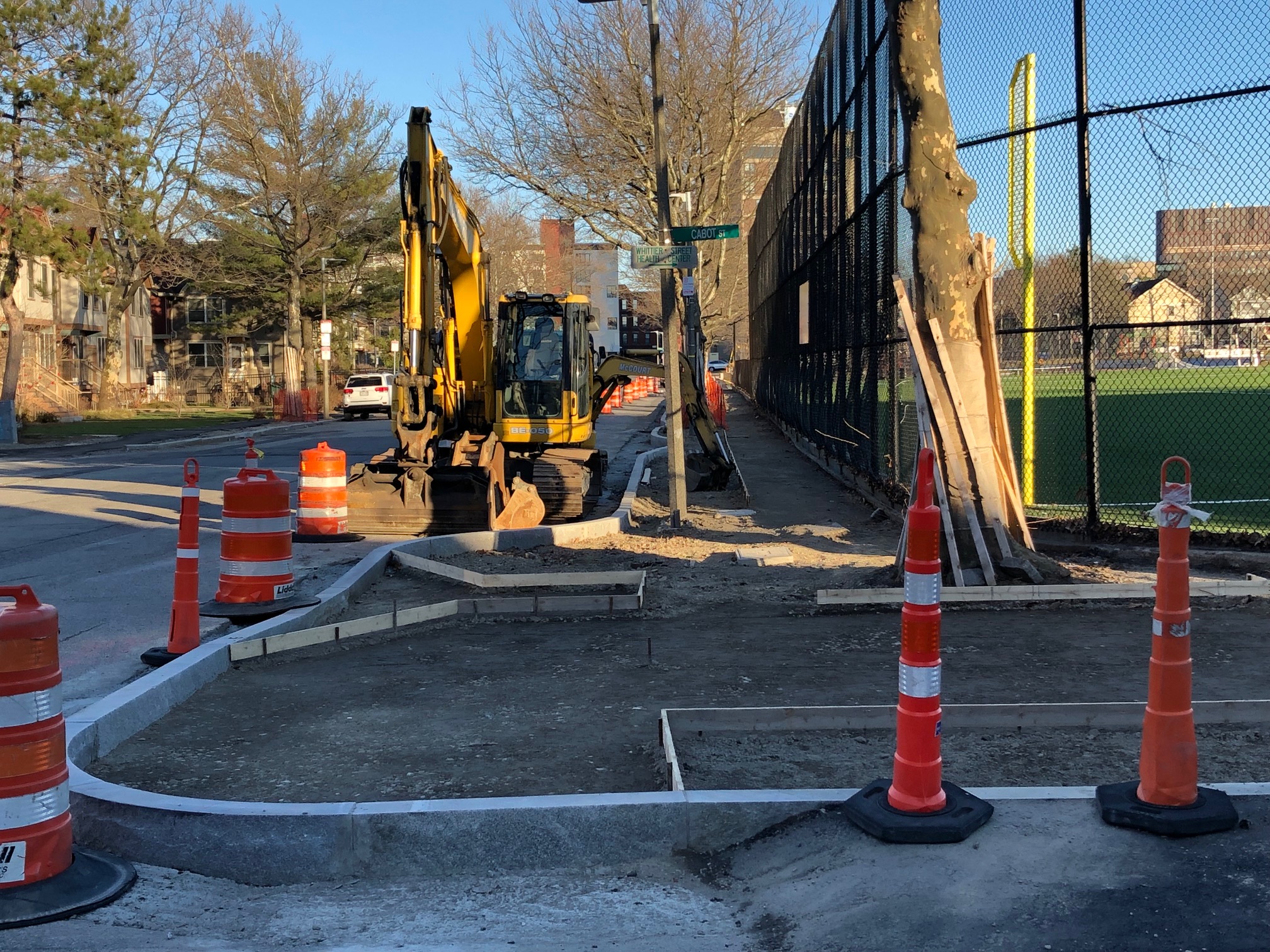Hours after advocates from the LivableStreets Alliance released their “64 Hours: Closing the Bus Equity Gap” report Monday, members of the MBTA's Fiscal and Management Control Board (FMCB) expressed frustration with the agency's lack of progress on improving service and reliability for the roughly 380,000 daily riders of the region's bus lines.
Monday's FMCB meeting included several agenda items related to the bus system, including a briefing on the MBTA's "Better Bus Project," the agency's multi-year effort to redesign routes and reverse recent declines in bus ridership.
The board also heard testimony from Somerville Mayor Joe Curtatone, who came to showcase the new bus lanes (pictured above) that were recently installed on Broadway from Magoun Square to the McGrath Highway.
"Our argument has always been – and it's been embraced by the community – that the only way out of this congestion crisis is to invest in transit and better mobility options," said Curtatone in public testimony.
Other municipal leaders seem to agree: this year, the MBTA expects that municipalities like Boston, Somerville and Arlington will set aside about 4 new miles of dedicated bus lanes to help speed bus riders through congested bottlenecks, with an additional 4 miles expected to come online in early 2020.
Kat Benesh, the MBTA’s chief of operations strategy, announced at Monday's meeting that the agency would set aside $10 million of its capital funds to help finance additional municipal bus priority infrastructure, including bus lanes and new traffic signals, as part of the Better Bus Project.
That figure failed to impress FMCB Chair Joseph Aiello. "This seems very timid," said Aiello. "It is just not right that we spend $200 million on rapid transit without even blinking and we let (bus riders) sit out in the cold with lousy service" (later in the same meeting, Aiello and his colleagues approved a $346 million purchase of new commuter rail cars with little discussion).
Fellow board member Monica Tibbits-Nutt agreed. "I just don't know how much we've actually accomplished so far with this (the Better Bus Project)," said Tibbits-Nutt. "It doesn't feel like anything is changing... and that is frustrating. At least for me as a board member and a bus user."
The board also discussed a major bottleneck in the T's bus service expansion ambitions: its lack of adequate bus garage facilities.
As the LivableStreets report noted, the agency already is short by 67 buses to meet its existing service commitments, largely because it lacks a place to park them in its dated bus garage facilities. In order to meaningfully expand service where it's needed most, LivableStreets suggests that the T should add 200 more buses and build several new bus garage facilities around the region.
In a separate FMCB presentation on MBTA bus facilities, Joe Pavao, a Project Manager from MassDOT, announced that the agency was planning conceptual replacements for its Southampton and Quincy garages, but also revealed that there had been, to date, no work done to design and permit any new garages, which will likely take several years to develop.






